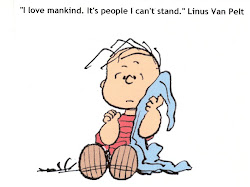"At first, it looked like 9/11 was having an enormous spiritual impact. Atheists, ‘seekers,’ lapsed Catholics, secular Jews and seemingly everyone else poured into churches and synagogues. Evangelist Franklin Graham predicted that Americans were committing themselves to God in an ‘enduring’ way and Pat Robertson predicted ‘one of the greatest spiritual revivals in the history of America.’
Then the flood of new worshipers receded. Church attendance went back to normal, and polls began to indicate that people were no more likely to pray, read the Bible or attend worship services than before. Nine out of ten Americans reported that 9/11 had ‘no lasting impact on their faith,’ according to a study released this week by Barna Research.
What's more, according to Barna Associates, the percentage of people who said ‘moral truth is absolute’ actually dropped from 38% in January 2000 to 22% in the fall of 2001. This was surprising since President Bush and others have talked of the attacks as a war between good and evil, a clash of absolute moral principles.
There were other signs that come 2002, Americans didn't view organized religion as much help. Only 11.2% of Americans sought advice from a minister, priest or religious leader, according to a study by the University of Chicago. Indeed, while the pews were emptying out, psychologists' offices were filling up. Drinking and pill use increased, Beliefnet found, at the same time formal worship declined.
Perhaps Americans experienced 9/11 much in the same way as a death in the family. For many, worship services provide powerful, comforting rituals that help them get through short-term crises but don't aid in the long run."
This reminded me of some research I had come across regarding early earthquakes in New England and the effects on the population in “the colonies” way back then. The U.S. Geological Survey (USGS) website has this historical excerpt from Historic Storms of New England by Sidney Perley related to the great earthquake of 1727:
"The people of New England were affected by this earthquake as they had never been before, being fearful of divine judgments for their sins and lax responsiveness to the call to religious duties. The clergy taught them that it was 'a loud call to the whole land to repent and fear and give glory to God.' The next morning great numbers of the inhabitants of Boston gathered at the old North church for prayer and other religious services. The old South was then opened, and those who failed of admission to the Brick church flocked thither, and that was also filled. Rev. Thomas Paine of Weymouth, Mass., and some other ministers, tried to prove to their congregations that the earthquake had not a natural cause, but was a supernatural token of God's anger to the sinful world.
The clergy improved the opportunity of leading the public mind toward the choice of a better portion than this earth can afford. The people were willing to be taught, and ready to believe, for the event they had just passed through convinced them of the uncertainty of temporal things, and a needed preparation for the life to come. Many who had before cared nothing for a religious life became penitent and devout. Seriousness was the expression on the faces of most of the people, and in some towns, large numbers were added to the church. In the parish of Chebacco in Ipswich, Mass., for instance seventy-six persons became church members. The earthquake had its effect upon some licentious characters, who became truly reformed, and afterward led honorable and moral lives. But, in too many cases, when their fears were gone, the religious thoughts and habits of the people lost their hold upon them."
Then these two pieces about two very different events set about 275 years apart reminded me of the Old Testament verse:
What has been will be again,
What has been done will be done again;
There is nothing new under the sun.
Ecclesiastes 1:9

2 comments:
When the devil was sick,
the devil a monk would be.
When the devil got well,
the devil a monk he'd be!
There was a Simpson's episode in which a panic leads the people of Springfield to conclude that the world is coming to an end. All the people in the bar run across the street to go into church, while all the people in the church run across the street to go into the bar.
CS Lewis has Uncle Screwtape touch on this explicitly, noting that the churches are full during wartime.
Post a Comment